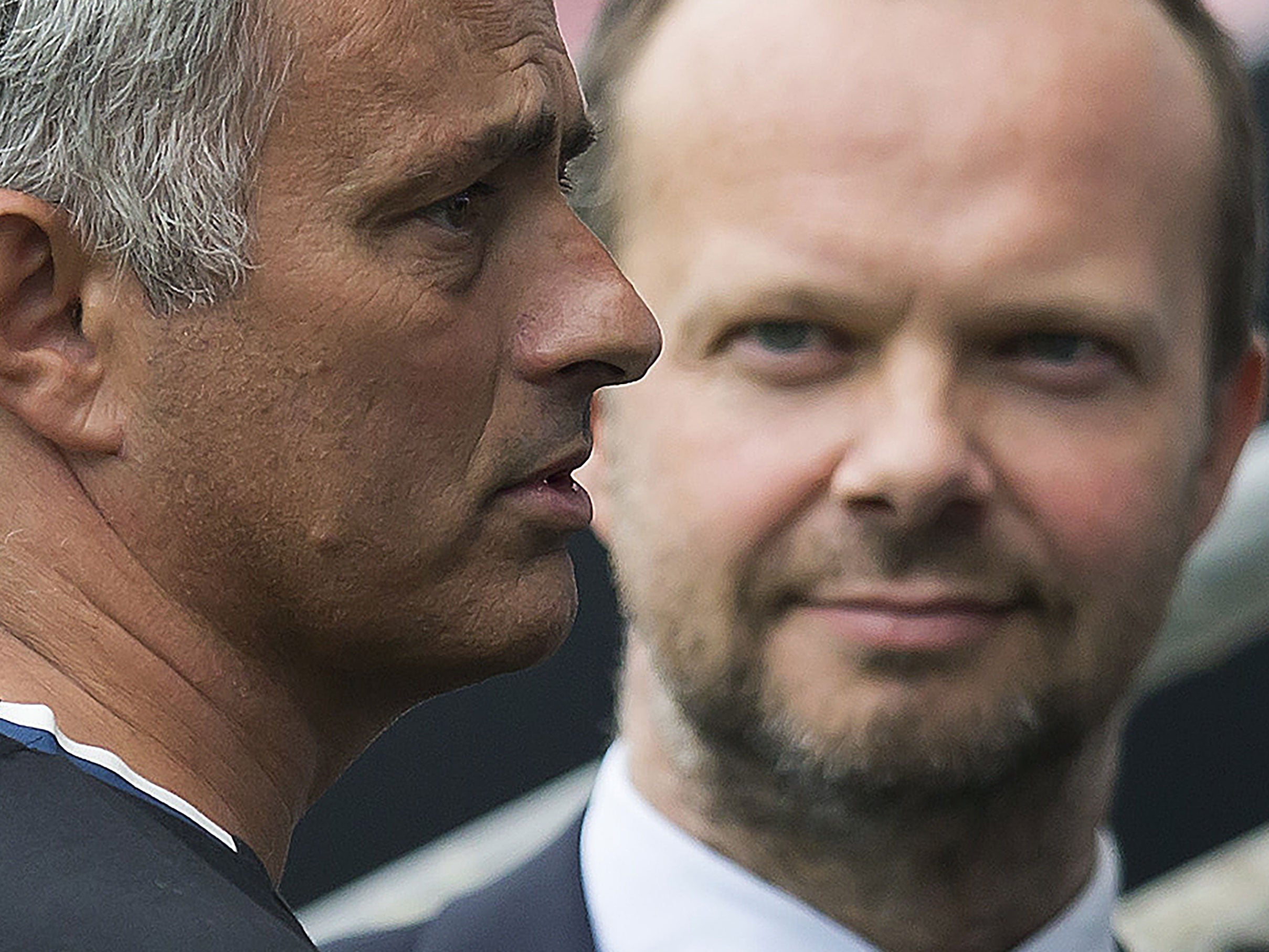Why Manchester United sacking Jose Mourinho was the right, radical decision for a usually conservative club
United have moved quickly to dismiss Mourinho and now must build the club's future rather than attempt to relive its past

Your support helps us to tell the story
From reproductive rights to climate change to Big Tech, The Independent is on the ground when the story is developing. Whether it's investigating the financials of Elon Musk's pro-Trump PAC or producing our latest documentary, 'The A Word', which shines a light on the American women fighting for reproductive rights, we know how important it is to parse out the facts from the messaging.
At such a critical moment in US history, we need reporters on the ground. Your donation allows us to keep sending journalists to speak to both sides of the story.
The Independent is trusted by Americans across the entire political spectrum. And unlike many other quality news outlets, we choose not to lock Americans out of our reporting and analysis with paywalls. We believe quality journalism should be available to everyone, paid for by those who can afford it.
Your support makes all the difference.Success breeds conservatism, whether it be placing too much responsibility in the hands of one person, chasing established and expensive 'sure things' in the transfer market, or keeping faith in an underachieving manager until he finally fails to meet the minimum expectation.
That has been the story at Manchester United in the post-Sir Alex Ferguson era: a conservatism that follows naturally from years of unparalleled success, especially when the club prospered from standing by and supporting its figurehead in a dutiful and unquestioning manner.
It is also why the dismissal of Jose Mourinho on Tuesday morning, after United's worst start to a campaign for 28 years, still came as something of a surprise.
Despite the difficulties this year, there was always a chance that Mourinho could see the season out, simply by being the man in possession at a club which has in the past shown an aversion to taking the difficult, risky decision.
David Moyes and Louis van Gaal were only relieved of their duties once Champions League qualification became an impossibility, and in Van Gaal's case, he was given an FA Cup final before the axe fell.
Even on Monday, in the wake of the defeat at Anfield, the club was still briefing that Mourinho's position was not under threat and that it was 'business as usual', as it had been after every other debilitating defeat.
But for executive vice-chairman Ed Woodward to move just a day later, before the halfway mark in the Premier League season and while something can still be salvaged, is the latest sign that change is afoot at Old Trafford.
The high-profile and ongoing search for a director of football was the first, a move that ran against the club's tradition of absolute managerial power. It was a tradition that served Ferguson well, of course, and one favoured by Mourinho too.
Yet it was also one entirely out-of-step with the structure of modern, successful clubs. The inadequacies of United's model were exposed during the summer, when Mourinho found his decisions on transfer targets were not supported by his superiors and vice versa.
The result was inertia. Fred, the £52million arrival from Shakhtar Donetsk, was the only major summer signing and his struggles to establish himself at Old Trafford - as well as the struggles of many Mourinho signings - contributed to Tuesday’s decision.

A directionless playing style, dressing room unrest and of course poor results have all played a part too. With Mourinho gone, the club’s priority is to try and encourage a positive environment and culture, rid of destructive negativity.
For all the various individual reasons though, there is also the overriding sense that Mourinho and United simply were no longer moving in the same direction.
What did it say, for example, when it was made clear during the pre-season tour of the United States that Mourinho was willing to let Anthony Martial, given that Woodward would not even countenance such a deal?
The club was equally as adamant that Paul Pogba would not be sold but Mourinho never seemed more than indifferent about the future of the club's record signing, a player he brought to Old Trafford just two years earlier.
Senior figures at United have a lot of faith in the likes of Pogba, Martial, Romelu Lukaku, Jesse Lingard, Marcus Rashford and Luke Shaw. They are seen as the future of an exciting, entertaining United team.
Why then continue to employ a manager who questions their character, as Mourinho did in an interview which surfaced last month? Mourinho did not want to work under a director of football model either. United are now able to pursue that key appointment more readily.
This is a club that is belatedly but gradually evolving and, even if results and performances had been better, a change of manager was a logical step.
In dismissing Mourinho, United had to overcome an old tendency to say ‘even if it is broke, don’t fix it’. This is, after all, the club that gave birth to the Mark Robins myth - the belief that a failing regime is only ever one moment away from embarking on years of glory.
Some of Sir Alex Ferguson’s final words in the job implored United supporters to stand by their new manager, as Martin Edwards had stood by him in 1990, though the club was guilty of waiting too long to dismiss Moyes and Van Gaal.
They cannot be accused of that this time. This is undoubtedly the right decision and it presents an opportunity for this typically-conservative club to make a radical break for the future.
Join our commenting forum
Join thought-provoking conversations, follow other Independent readers and see their replies
Comments